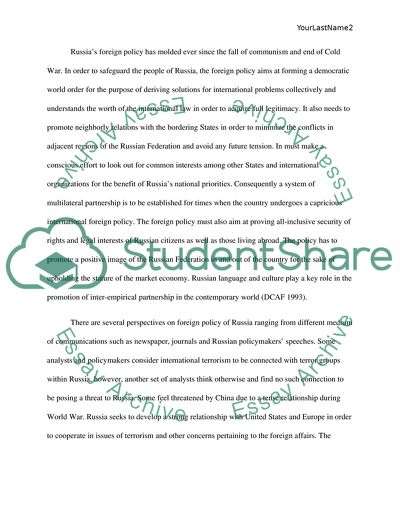Cite this document
(Russia and its Foreign Policy Research Paper Example | Topics and Well Written Essays - 2000 words, n.d.)
Russia and its Foreign Policy Research Paper Example | Topics and Well Written Essays - 2000 words. Retrieved from https://studentshare.org/politics/1767466-russia
Russia and its Foreign Policy Research Paper Example | Topics and Well Written Essays - 2000 words. Retrieved from https://studentshare.org/politics/1767466-russia
(Russia and Its Foreign Policy Research Paper Example | Topics and Well Written Essays - 2000 Words)
Russia and Its Foreign Policy Research Paper Example | Topics and Well Written Essays - 2000 Words. https://studentshare.org/politics/1767466-russia.
Russia and Its Foreign Policy Research Paper Example | Topics and Well Written Essays - 2000 Words. https://studentshare.org/politics/1767466-russia.
“Russia and Its Foreign Policy Research Paper Example | Topics and Well Written Essays - 2000 Words”, n.d. https://studentshare.org/politics/1767466-russia.


